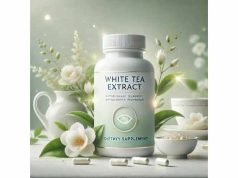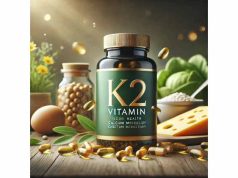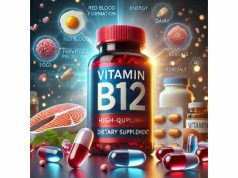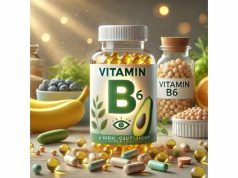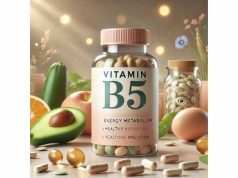
Ginseng, a revered medicinal herb widely recognized in traditional Eastern remedies, is increasingly drawing attention for its possible vision-supporting qualities. Best known for bolstering energy levels and improving resilience against everyday stress, ginseng may also positively influence ocular structures and function. Through its potent antioxidant and circulation-enhancing properties, this adaptogenic root could potentially protect key components of the eye while easing strain caused by modern lifestyles. If you’re curious about harnessing nature’s power to keep your eyes functioning at their best, read on to discover how ginseng may help promote clearer vision and long-term eye wellness.
Table of Contents
- What Exactly Is Ginseng?
- How Ginseng Encourages Better Vision
- Vital Gains of Ginseng for Eye Wellness
- Effective Methods to Use Ginseng for Ocular Support
- Analyzing the Science: Current Research on Ginseng and Eyesight
- Frequently Asked Questions
- References and Sources
What Exactly Is Ginseng?
Ginseng is a slow-growing perennial herb prized for its distinctive, forked roots. Belonging to the genus Panax—which means “all-healing” in Greek—ginseng varieties such as Panax ginseng (Asian ginseng) and Panax quinquefolius (American ginseng) have played significant roles in Asian and Native American medical traditions for centuries. As an adaptogen, ginseng is believed to support the body’s capacity to regulate stress responses and sustain overall vitality.
Key Ginseng Variants
- Panax Ginseng (Asian Ginseng): Grown primarily in China, Korea, and parts of Russia, it’s noted for its energizing effects.
- Panax Quinquefolius (American Ginseng): Cultivated in North America, it has a milder profile often regarded as more cooling or calming.
- Siberian Ginseng (Eleutherococcus Senticosus): Not a true ginseng variety but frequently marketed similarly, this herb offers distinct but related benefits.
Historical Use
Traditional Chinese Medicine (TCM) has long lauded ginseng for improving energy (qi), supporting stamina, and aiding recuperation. Native American tribes employed American ginseng for headaches, fertility concerns, and inflammation. Over the centuries, ginseng’s reputation for revitalizing the body has been tested—and sometimes validated—by modern science, prompting new ideas on its potential roles in numerous health areas, including ocular wellness.
Active Compounds
Ginseng’s most researched ingredients are ginsenosides (or panaxosides). These saponin compounds are credited with ginseng’s purported:
- Anti-Inflammatory Capacity: Through modulating various inflammatory pathways.
- Antioxidant Defenses: By scavenging free radicals and supporting intracellular antioxidant enzymes.
- Adaptogenic and Immunomodulatory Roles: Enhancing resilience against physical and mental challenges.
Ongoing investigations explore ginseng’s wide-ranging benefits, extending to cardiovascular health, cognitive function, and immune response. The logic behind its potential eye health advantages hinges on these same mechanisms: improved circulation, reduced oxidative stress, and moderated inflammation.
How Ginseng Encourages Better Vision
Maintaining clear sight depends on numerous factors: stable blood flow to the retina, robust antioxidant defenses, and balanced inflammation. Ginseng may contribute to these protective parameters through its rich profile of ginsenosides and other phytochemicals. While it isn’t a cure-all for severe eye diseases, ginseng’s multi-faceted action can offer meaningful support when combined with a healthy lifestyle.
1. Boosting Ocular Circulation
Blood flow nourishes every eye structure, from the lens and cornea to the retina and optic nerve. Suboptimal circulation can degrade visual function and leave eye tissues vulnerable to damage. Ginseng might enhance microcirculation by:
- Promoting Vasodilation: Some studies suggest ginsenosides can relax blood vessels, allowing more efficient nutrient and oxygen delivery.
- Supporting Endothelial Health: The herb could help keep the lining of blood vessels resilient, reducing inflammation and potential blockages.
2. Antioxidant and Anti-Inflammatory Support
Oxidative stress and chronic inflammation damage cells in the retina and other eye structures, often contributing to macular degeneration, cataracts, or diabetic retinopathy. Ginseng’s effects may:
- Neutralize Free Radicals: Through its antioxidant-like qualities, diminishing molecules that can degrade proteins and membranes.
- Moderate Pro-Inflammatory Pathways: Ginsenosides have demonstrated the ability to dampen excessive inflammatory signals, cutting down potential harm to delicate ocular tissues.
3. Enhancing Energy Metabolism
Retinal cells, especially photoreceptors, require significant energy to function. Ginseng’s adaptogenic nature may support metabolism at the cellular level. This phenomenon often manifests as improved endurance, and theoretically:
- Sustaining Photoreceptor Activity: Consistent energy supply can minimize fatigue in visual pathways, contributing to more stable, reliable sight.
- Reducing Eye Fatigue Symptoms: Users of ginseng sometimes report decreased general fatigue, which may translate to less dryness or irritation for those with heavy screen usage.
4. Regulating the Stress Response
Chronic stress taxes the entire body, including the eyes, especially if cortisol and related hormones remain elevated. Ginseng can help the body adapt to stressors, potentially:
- Preventing Vessel Constriction: Stress-induced vasoconstriction can reduce ocular blood flow. Ginseng’s stress-buffering effect helps maintain normal circulation.
- Supporting Hormonal Balance: Balanced hormone levels help preserve stable tear production and normal nerve function, further benefiting the eyes.
5. Collaborating with Eye-Friendly Nutrients
Ginseng’s synergy with known vision-friendly substances like lutein, zeaxanthin, omega-3 fatty acids, and vitamins A, C, and E could produce an enhanced protective effect. When antioxidants and adaptogens join forces, the eye may receive broader defense against age- or lifestyle-related wear.
Vital Gains of Ginseng for Eye Wellness
Although not traditionally categorized among the “classic” eye vitamins (like lutein or vitamin A), ginseng confers several benefits that indirectly support ocular well-being. Whether you are concerned about everyday strain or age-related changes, this adaptable herb could be a potent ally.
1. Reduced Eye Strain
Thanks to the omnipresence of digital screens, many people suffer from dry, itchy, or watery eyes—indicative of digital eye strain. Ginseng’s overall effect on energy and stress levels can help individuals:
- Maintain Steady Eye Comfort: Lower stress hormones and bolstered antioxidant defenses can alleviate mild inflammation in ocular tissues.
- Ease General Fatigue: Feeling more energized overall can make it easier to sustain healthy blinking habits and posture, reducing strain on the eyes.
2. Better Night Vision
If ginseng boosts blood flow and antioxidant activity in the retina, it may subtly enhance the eye’s ability to adjust in low-light settings:
- Protecting Rod Cells: Rod photoreceptors handle vision in dim environments; free radical buildup can hamper their function.
- Aiding Nutrient Delivery: Consistent microcirculation ensures these cells receive crucial vitamins and oxygen for effective night vision.
3. Support for Retinal Health
From age-related macular degeneration (AMD) to diabetic retinopathy, the retina is often the first site of serious eye problems. Ginseng’s role in stabilizing inflammatory and oxidative processes can:
- Slow Progression of Retinal Degeneration: Providing the retina with a more supportive environment.
- Maintain Macular Integrity: With less oxidative stress, the macula’s critical pigments remain intact longer, preserving central vision.
4. Potential Role in Glaucoma Prevention
Glaucoma arises in part from increased intraocular pressure (IOP) and compromised optic nerve function. While ginseng is not a recognized treatment for glaucoma, healthy vascular function and stress management may reduce risk factors:
- Stable Blood Pressure: Helps maintain balanced pressure gradients within the eye.
- Enhanced Nerve Resilience: Better circulation to the optic nerve might lower damage from mild pressure elevations, though additional research is needed.
5. Protective Effects Against Environmental Stressors
Pollutants, UV radiation, and blue light from digital devices barrage the eyes daily. As an adaptogen, ginseng may help the body cope with these external stressors:
- UV-Induced Damage Mitigation: Strong antioxidant support can reduce cellular disruptions triggered by excessive sun exposure.
- Buffering Blue Light Effects: Although less direct, robust retina health and blood flow can help protect eyes from strain caused by screens and artificial lighting.
6. Improved Overall Vitality, Reflecting in Eye Health
A healthy body tends to manifest in vibrant eyes—clear sclera, unclouded lenses, and comfortable tear film. Ginseng’s broader impact on immune function, energy, and stress responses indirectly fosters a setting in which eyes remain vibrant. Reduced systemic inflammation and consistent energy levels boost the chance of maintaining strong, healthy vision over time.
Effective Methods to Use Ginseng for Ocular Support
Ginseng is available in various forms—capsules, powders, teas, extracts—and usage strategies can vary widely based on individual preferences and health goals. While research is ongoing, certain guidelines may help maximize the herb’s benefits for eye health.
1. Selecting the Right Type of Ginseng
- Asian Ginseng (Panax Ginseng): Generally considered more stimulating and warming, potentially suited for those feeling lethargic or cold-natured.
- American Ginseng (Panax Quinquefolius): Perceived as more cooling and calming, which may be beneficial for those dealing with excess heat or who prefer a gentler effect.
- Standardized Extracts: Look for ginseng products specifying a ginsenoside content (e.g., 5% ginsenosides), ensuring a more reliable level of active compounds.
2. Dosage Considerations
Common daily dosages range from 200 mg to 1,000 mg of standardized extract, but can vary with product strength and your health profile. While moderate intake over several weeks or months is typical, high doses taken for extended periods might lead to:
- Elevated Blood Pressure or Heart Rate: Particularly if you have sensitivity to stimulants or pre-existing cardiovascular conditions.
- Hormonal Disruptions: Ginseng’s adaptogenic nature might influence hormone levels in vulnerable individuals.
- Insomnia or Jitters: If taken late in the day due to its mildly energizing properties.
Consulting a healthcare provider ensures your ginseng usage aligns with personal needs, especially if you’re on medications or managing chronic health concerns.
3. Timing Your Intake
When to consume ginseng often hinges on personal preference:
- Morning or Early Afternoon: Helps harness the herb’s energy-promoting benefits while avoiding potential nighttime overstimulation.
- Cycled Use: Some practitioners suggest taking ginseng for several weeks, followed by a break to sustain efficacy and minimize side effects.
4. Combining Ginseng with Eye-Supporting Nutrients
Pair ginseng with well-studied ocular nutrients for improved synergy:
- Lutein & Zeaxanthin: Fortify the macula against high-energy blue light and free radicals.
- Omega-3s: Bolster tear film quality and reduce general inflammation.
- Vitamin A, C, E & Zinc: Core components of many evidence-based eye supplements like the AREDS formulations.
By combining adaptogenic and antioxidant advantages, this multi-tier approach may yield a more resilient visual system.
5. Lifestyle Practices to Complement Ginseng
Even the most potent supplements can only do so much if your day-to-day habits strain the eyes. Consider:
- Regular Screen Breaks: Follow the 20-20-20 rule—every 20 minutes, view something 20 feet away for 20 seconds to reduce digital eye strain.
- UV Protection: Wear sunglasses outdoors to minimize UV-induced oxidative stress.
- Consistent Sleep Schedules: Restful sleep facilitates cellular repair, crucial for ocular tissues.
- Adequate Hydration: Dry eyes can be exacerbated by dehydration; aim for sufficient fluid intake throughout the day.
6. Potential Contraindications and Cautions
While ginseng typically has a good safety track record, some individuals should take extra care:
- Blood Pressure or Heart Conditions: Ginseng can sometimes raise or fluctuate blood pressure.
- Diabetes: Ginseng may affect blood sugar regulation. Monitor glucose levels if you have diabetes or hypoglycemia.
- Pregnancy and Breastfeeding: Research is limited. Consult a professional for personalized advice.
- Medication Interactions: Ginseng can interact with drugs like anticoagulants, antidepressants, and immune-modulators.
Exercise moderation, and when in doubt, seek a healthcare practitioner’s guidance on whether or how to incorporate ginseng into your regimen.
Analyzing the Science: Current Research on Ginseng and Eyesight
Ginseng boasts a large scientific literature base examining its adaptogenic and metabolic influences. Yet, direct studies evaluating its specific impacts on vision remain comparatively sparse. Preliminary research does, however, shed light on relevant pathways.
1. Retinal Cell Protection
Early in-vitro studies suggest that certain ginsenosides can shield photoreceptor cells from oxidative injury. These results align with other evidence where ginseng extracts mitigate neurodegenerative processes by tempering inflammation and free radical activity. Though human trials focusing exclusively on retinal health are limited, the mechanistic plausibility for retinal support is compelling.
2. Glucose Regulation in Diabetic Retinopathy
Diabetic retinopathy arises when unregulated blood sugar triggers damage to blood vessels in the retina. Some ginseng types may moderate glucose spikes and improve insulin sensitivity. Indirectly, this effect can help delay or reduce the severity of diabetic retinopathy, provided the approach complements standard diabetes care (diet, exercise, medication).
3. Enhancement of Circulatory Indices
Studies on ginseng’s effect on microcirculation show potential improvements in peripheral blood flow. For instance, certain trials observe an uptick in capillary perfusion and oxygen delivery, fueling speculation that consistent use might similarly promote healthy blood flow to the eyes, delaying vascular-related visual deterioration.
4. Anti-Inflammatory Mechanisms and Eye Disease
Ginsenosides, especially Rg1, Rb1, and Rd, exhibit broad anti-inflammatory activities. Chronic inflammation is a culprit behind conditions like macular degeneration and ocular surface diseases. Laboratory findings confirm that ginseng can attenuate key inflammatory markers (e.g., IL-6, TNF-α), suggesting a plausible protective effect on the eye’s sensitive structures.
5. Human Studies and Eye Strain
A few smaller clinical pilot programs note that participants with high screen exposure or mild ocular discomfort reported decreased dryness and fatigue when supplementing with ginseng extracts. Though limited in scope and lacking rigorous controls, these anecdotal results point to a potential synergy between ginseng’s systemic energizing benefits and improved ocular comfort.
6. Need for More Direct Trials
Experts widely acknowledge the necessity for targeted, controlled clinical studies that follow eye-specific metrics—like measuring tear break-up time, macular thickness, or progression rates of retinopathy. Many ginseng investigations revolve around metabolic, cognitive, or immune parameters rather than direct ophthalmologic endpoints. As interest grows, future research may confirm or refine the role ginseng can play in vision preservation.
Frequently Asked Questions
Is ginseng safe for ongoing daily consumption to support eye health?
Ginseng is generally regarded as safe for most adults. However, long-term, high-dose use may cause issues like elevated blood pressure or insomnia. Sticking to recommended dosages and cycling your intake can help maintain benefits without risking overuse.
Can ginseng alone resolve existing eye disorders?
Ginseng isn’t a miracle cure. It can complement a healthy lifestyle, balanced nutrition, and medical treatments, but it won’t singlehandedly reverse conditions like glaucoma or macular degeneration. Use it as part of a broader vision-support strategy.
How soon can I see improvements in vision after starting ginseng?
Individual responses vary. Some people notice reduced eye fatigue within a few weeks, while slower changes like better night vision or dryness relief might take longer. Consistency over several months often yields more pronounced benefits.
Which type of ginseng is best for visual enhancement?
Both Asian and American ginseng may offer similar antioxidant and circulation benefits. The choice often depends on personal preference or body constitution. If you’re unsure, consult a practitioner familiar with herbal medicine for guidance.
Can I combine ginseng with standard eye supplements?
Yes. Pairing ginseng with established eye-supportive nutrients such as lutein, zeaxanthin, or omega-3 fatty acids can amplify overall protection. Just monitor total supplement intake to avoid nutrient imbalances or potential medication interactions.
References and Sources
- Attele, A. S., Wu, J. A., & Yuan, C. S. Ginseng Pharmacology: Multiple Constituents and Multiple Actions. Biochemical Pharmacology, 1999; 58(11): 1685-1693.
- Kim, J. H. Cardiovascular Diseases and Panax Ginseng: A Review on Molecular Mechanisms and Medical Applications. Journal of Ginseng Research, 2012; 36(1): 16-26.
- Lee, N. H., & Son, C. G. Systematic Review of Randomized Controlled Trials Evaluating the Efficacy and Safety of Ginseng. Journal of Acupuncture and Meridian Studies, 2011; 4(2): 85-97.
- Predy, G. N., et al. Effects of a Ginseng-based Natural Health Product on Adult Patients with Chronic Fatigue. Canadian Medical Association Journal, 2006; 174(7): 975-979.
- Zhou, W., & Chai, H. Role of Ginsenosides in the Protection of Retinal Cells from Oxidative Stress. Phytomedicine, 2019; 55: 63-71.
- Qi, L. W., Wang, C. Z., & Yuan, C. S. American Ginseng: Potential Structure-Function Relationship in Cancer Chemoprevention. Biochemical Pharmacology, 2010; 80(7): 947-954.
Disclaimer:
This article is provided for educational purposes only and should not replace personalized medical advice. Always consult a qualified healthcare professional before altering your supplement regimen, particularly if you have existing conditions or take prescription medications.
If you found this information helpful, please share it on Facebook, X (formerly Twitter), or any other social platform. Be sure to follow us online for more insights and tips about optimizing your vision and overall well-being!


